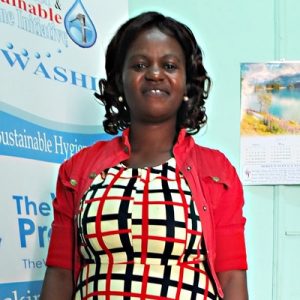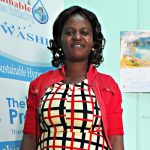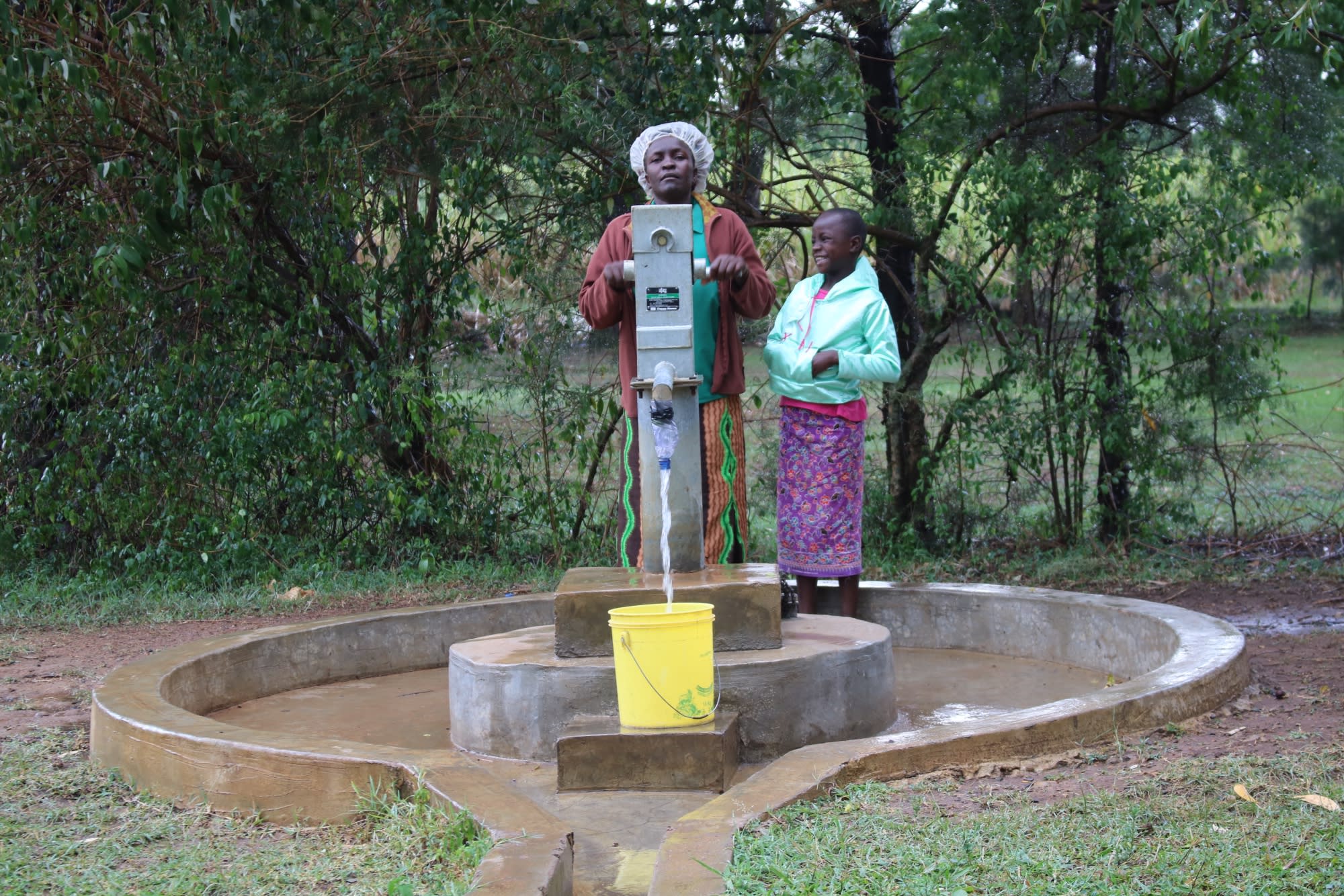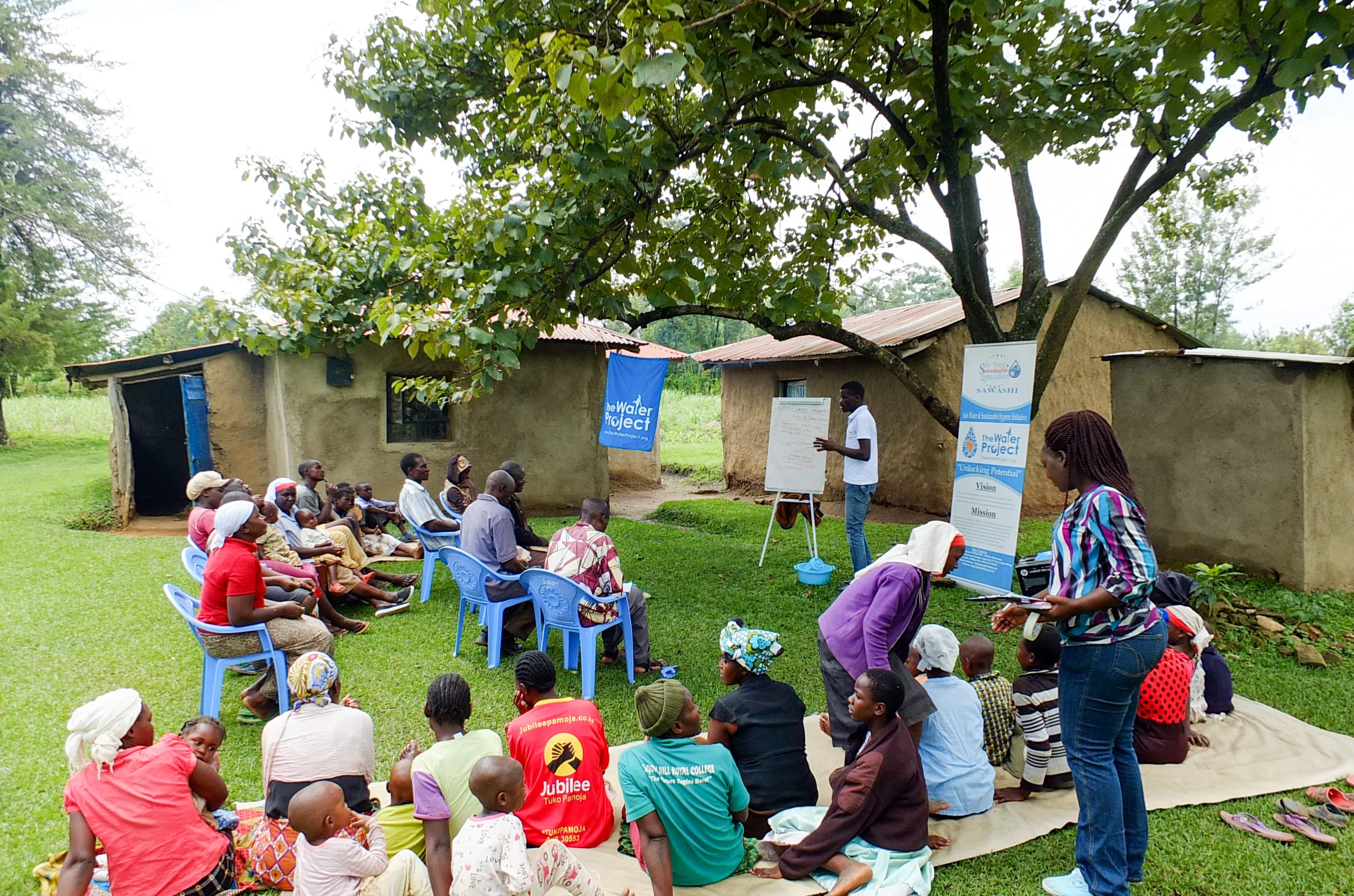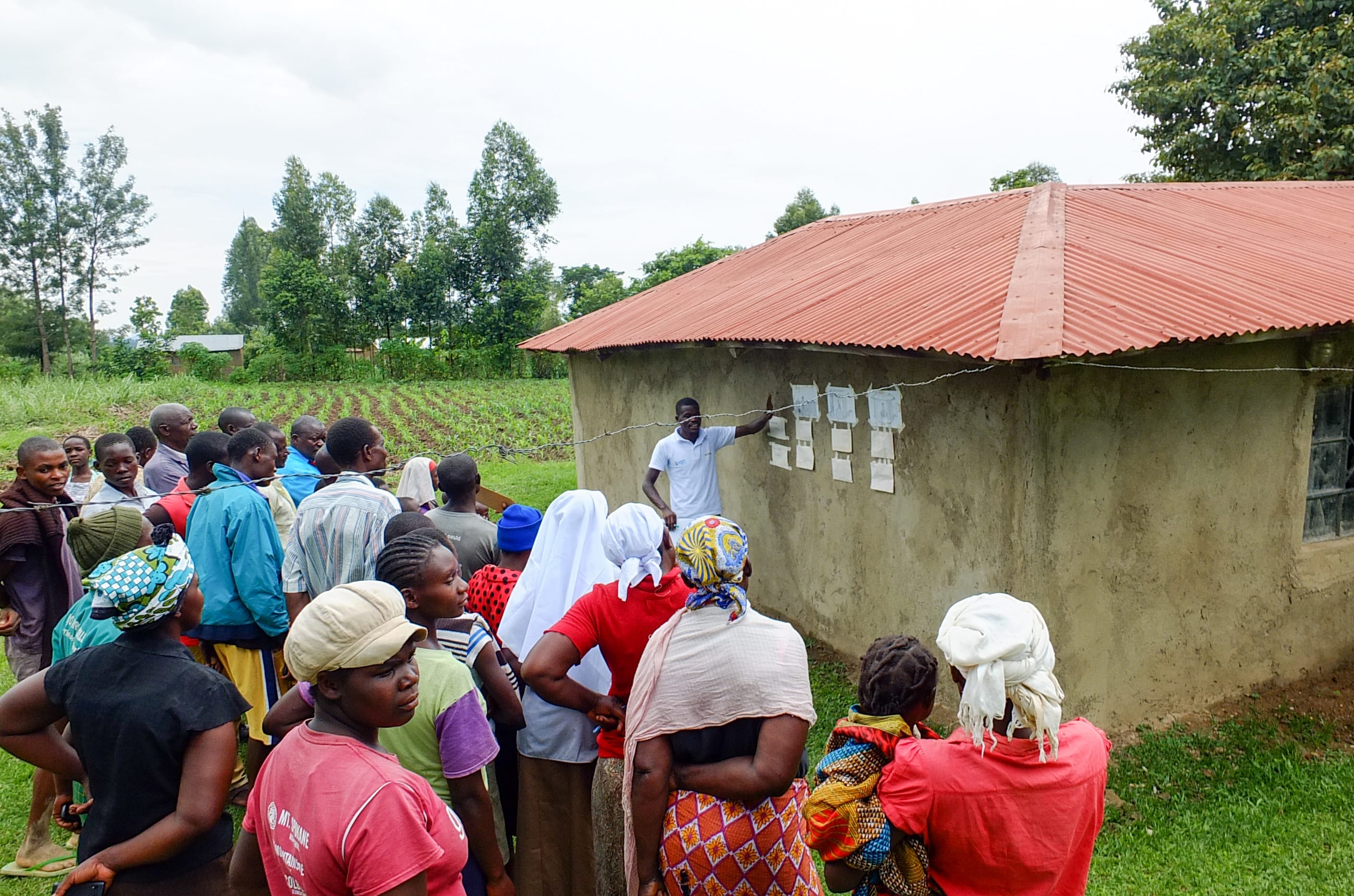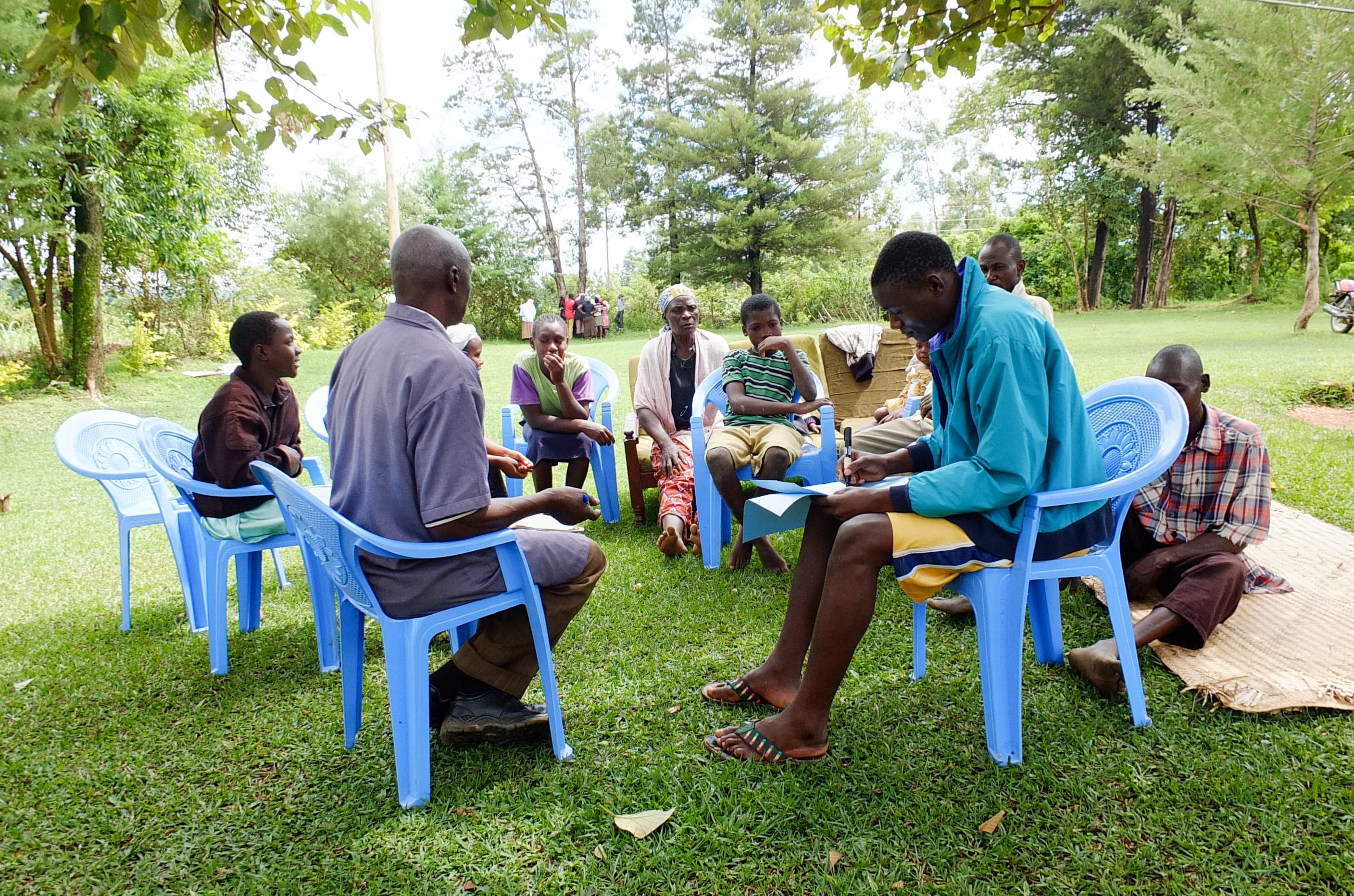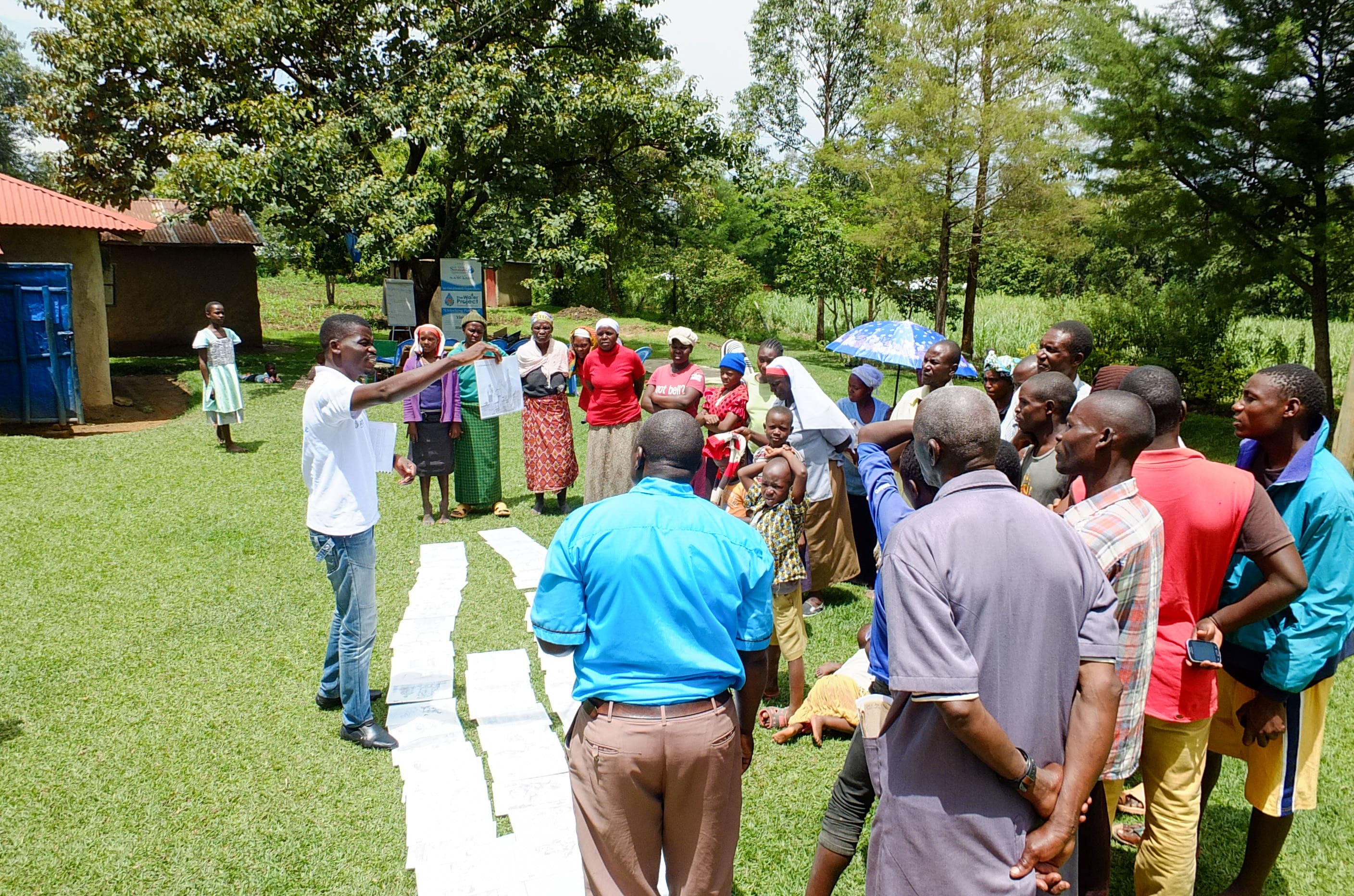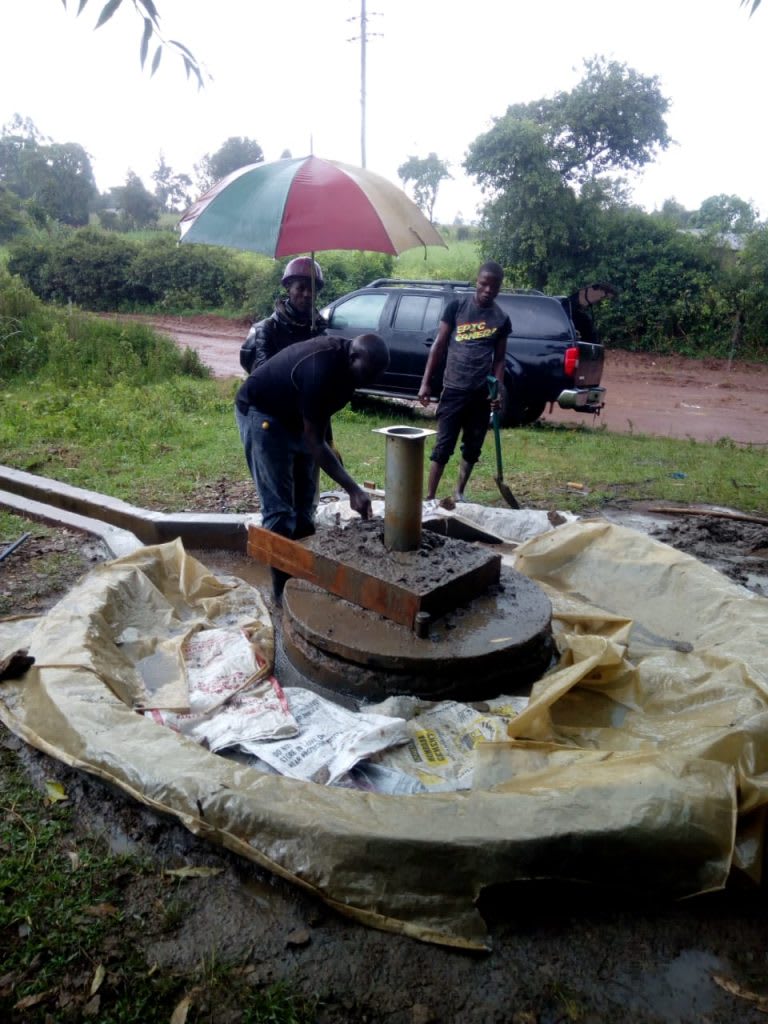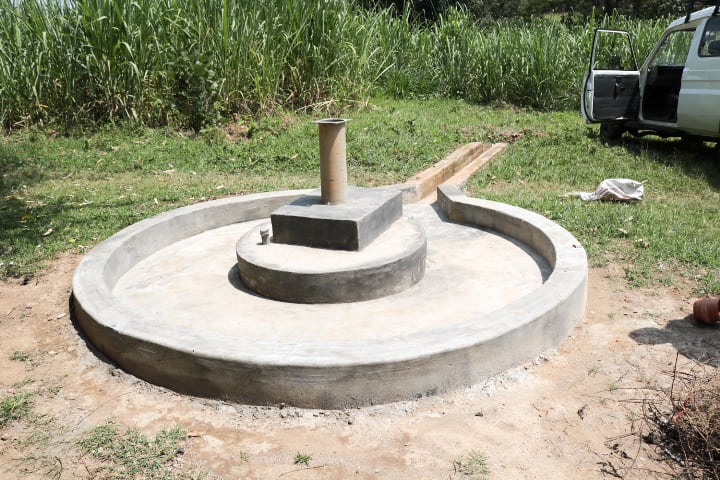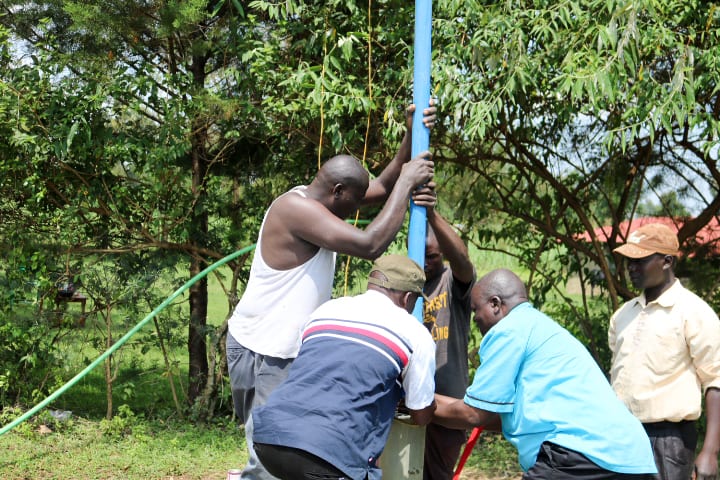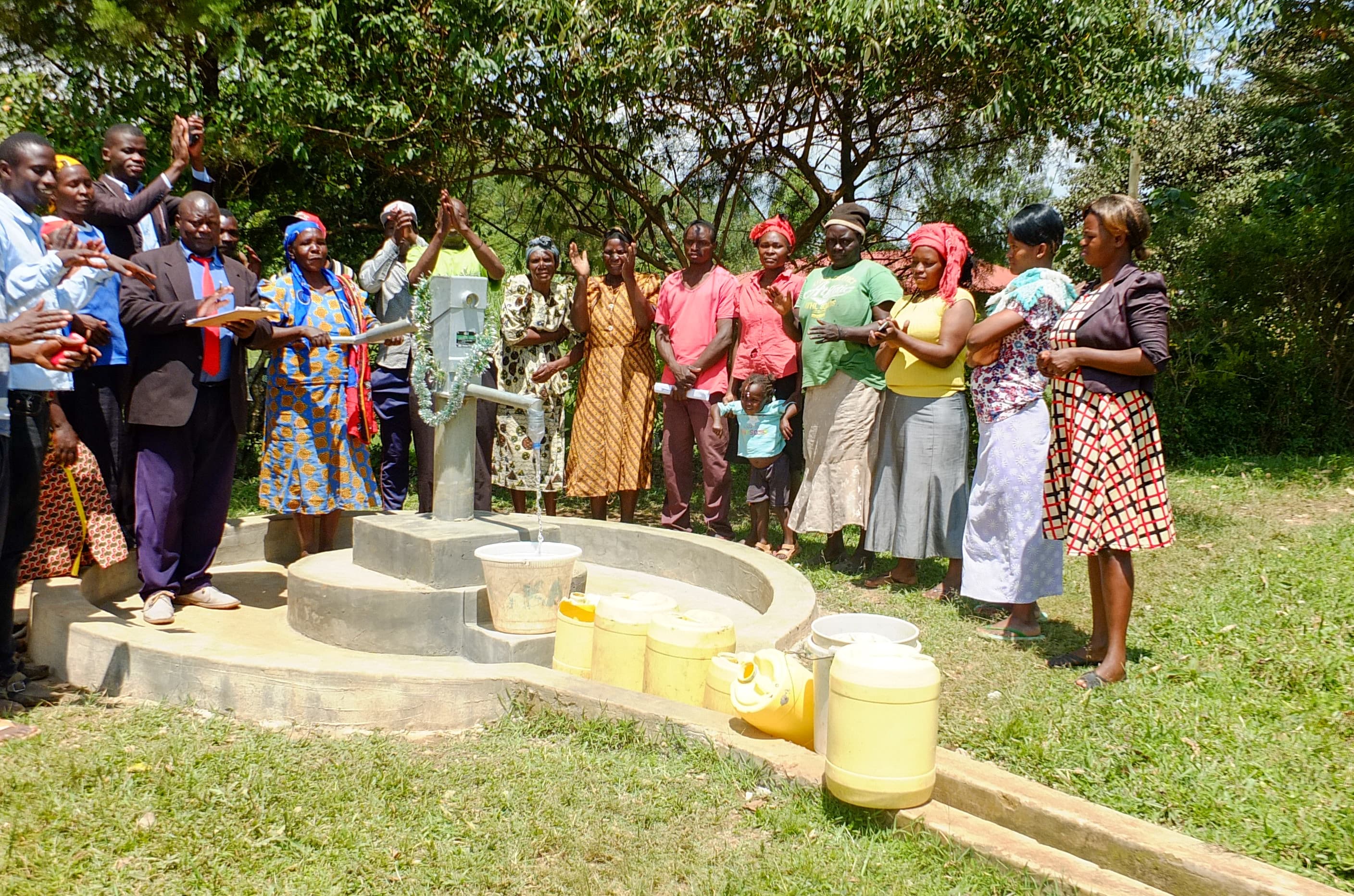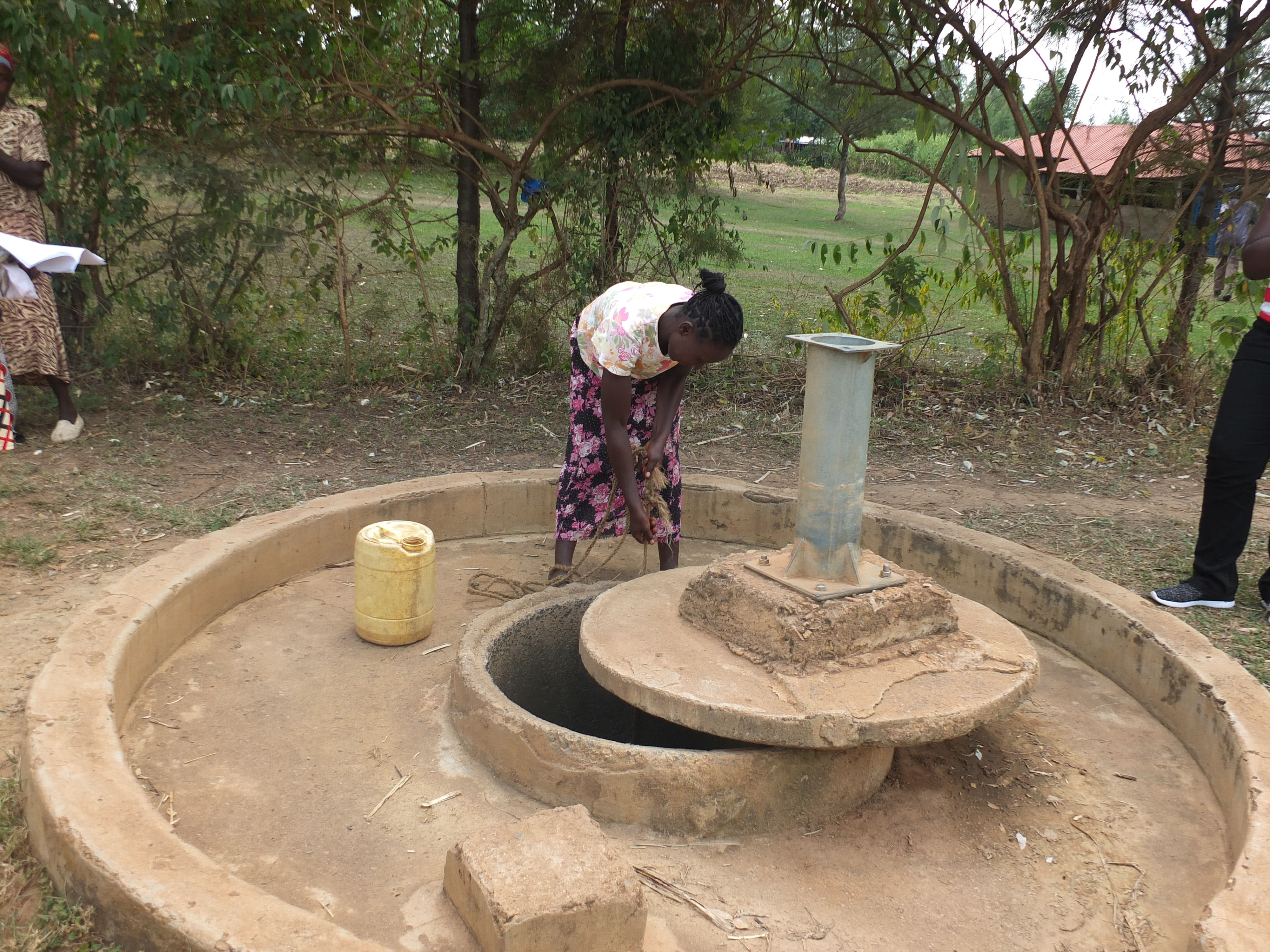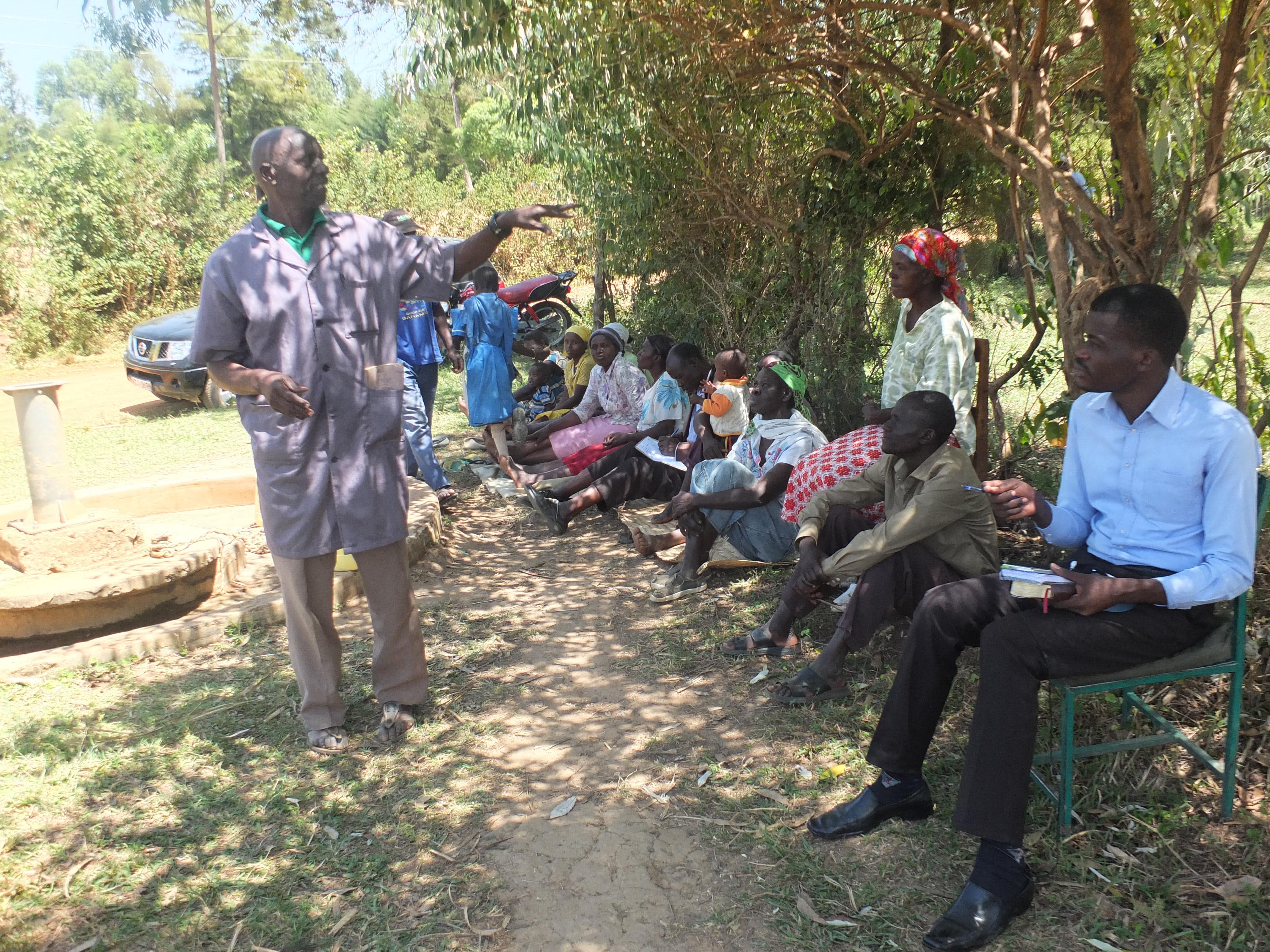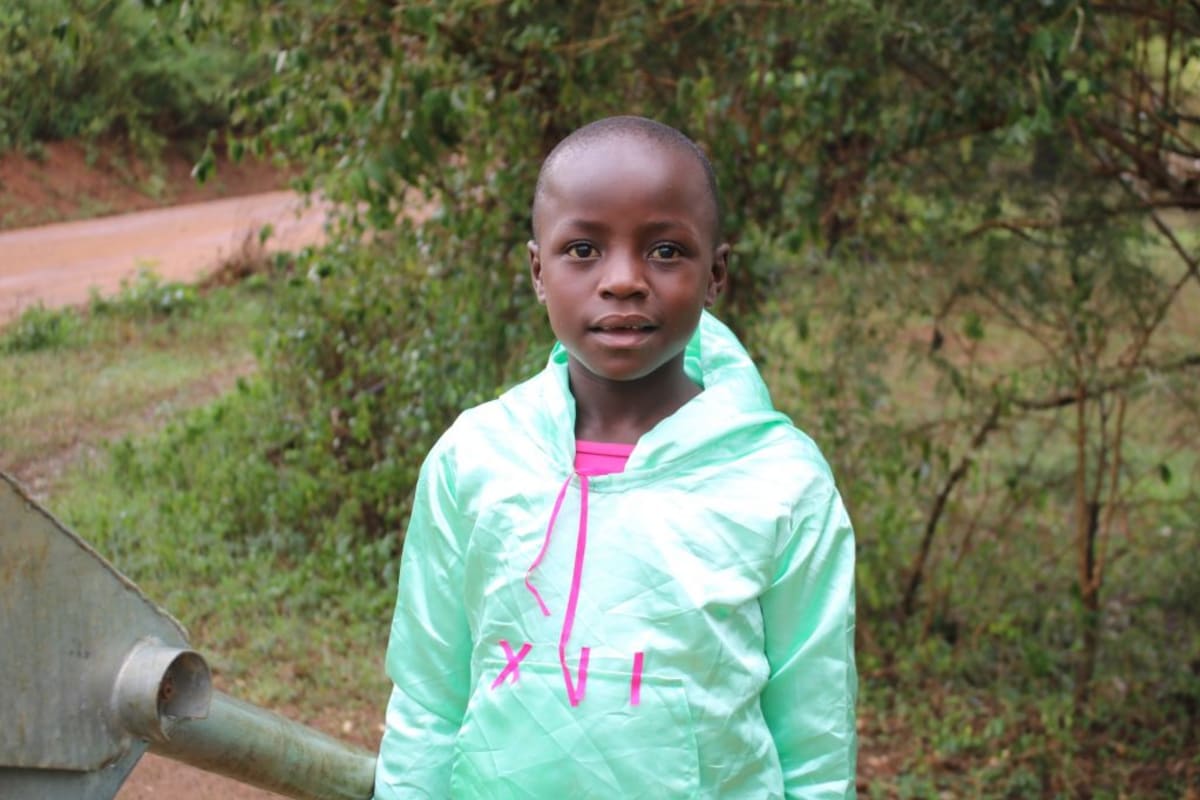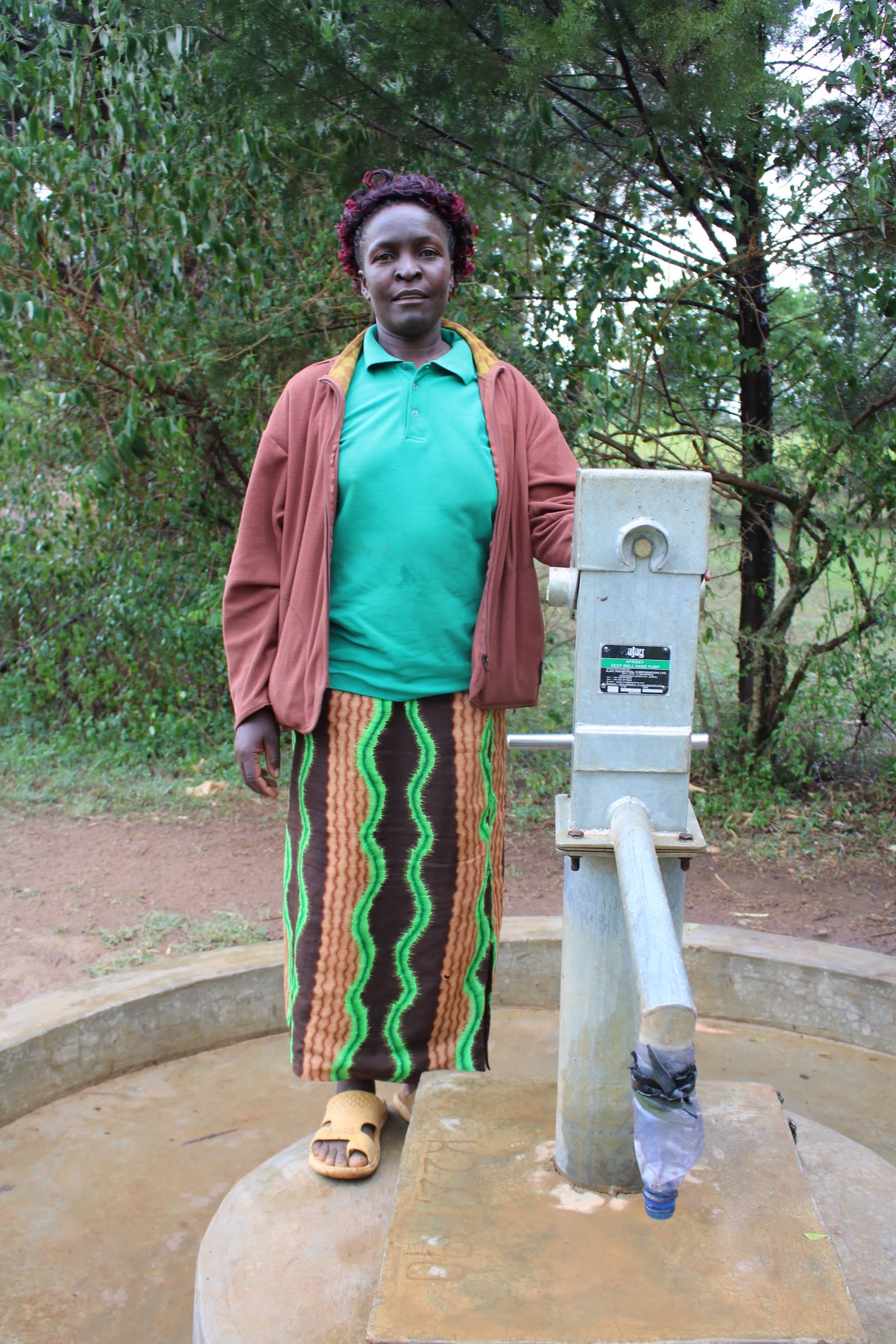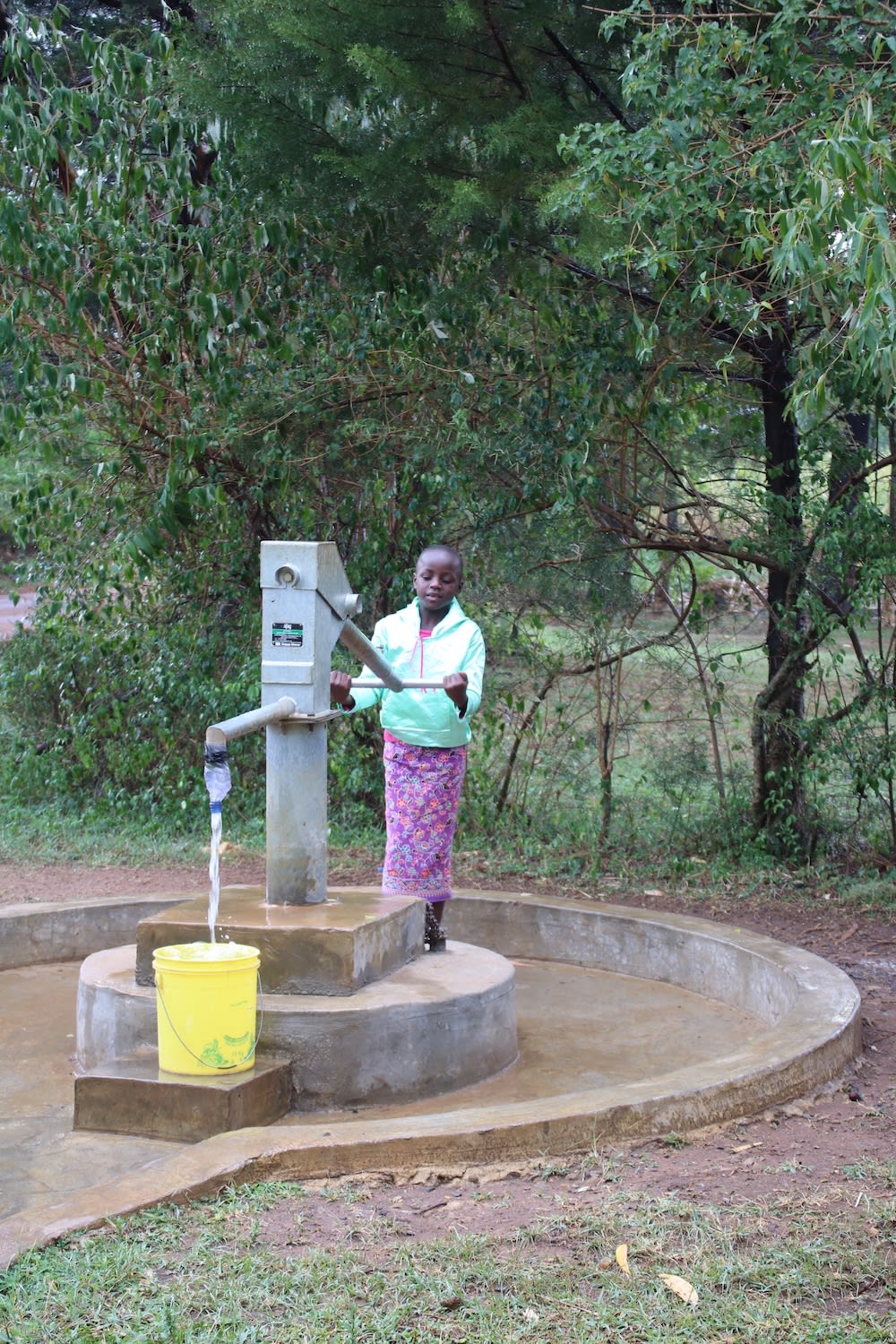It was a hot, sunny, but thankfully windy day when we first visited Kitali Community. It's a rural area that's slowly picking up in development. Dense vegetation is broken up by small, mud block households.
There are 840 people from 120 different households living in Kitali. The average family is huge, with around 10 people living under one roof. They practice farming, specializing in sugarcane that's sold to Butali Sugar Factory and West Sugar Factory. Apart from sugarcane, they plant vegetables in their kitchen gardens to feed their own families. Many of the men are actually employed as laborers for the sugar factories.
Water
There are three different types of water sources in Kitali: rainwater is collected from household roofs, water is paid for from a kiosk, and a bucket and rope are used to access water in an open well.
We're concerned about the rainwater, for it's being collected on dirty, rusty roofs. Plus, households only have small buckets and can only collect a small amount. They must supplement this rainwater with either cheap and dirty water or expensive and clean water. This is a difficult choice for households, since sugarcane is being sold at record lows.
Households report that not only is the water kiosk water expensive as they're charged per container, but it's also too far for many of them. The open well with a bucket is so much closer, and they insist that it's been reliable since the 1980s.
"In this community, we have a lot of problems especially we the women. Our work has become so difficult because we lack water. Often we get sick because of consuming dirty and contaminated water. Our children are weak and often get sick as well. Our income is also affected by the issue of water and that is why this community is lagging behind when it come to development," Mrs. Antony said.
Sanitation
Only a few households are missing pit latrines, which is good news. The bad news is that all of the latrines we visited are in poor condition - not being cleaned frequently because of water scarcity. There are a couple of handwashing stations, but none of them had soap.
People are aware that they should be cleaning their latrines and washing their hands, but they're of course prioritizing drinking water and cooking water. Mr. Antony Simiyu confirmed this.
"Sanitation conditions in our community are very poor. People don't even take handwashing seriously because of the scarcity of water," he said.
"It is difficult for one to go at a far distance to bring water to clean the toilet when there is no water in the kitchen. We give priority to the kitchen and not toilets when it comes to water. One can take even three days without taking a bath because water is scarce here and this affects our body hygiene."
Here's what we're going to do about it:
Training
In this community, they are trying their very best when it comes to hanging clothes on a clothesline to dry after washing. But when it comes to handwashing and general hygiene, they need to improve. This can be done through the training that will be offered to them. Knowledge is power, and this is what they lack in this community. Once they have the information, we are confident that their attitude towards hand-washing and personal hygiene will change. And most importantly, they'll have clean water that's easily accessible.
The facilitator plans to use PHAST (Participatory Hygiene and Sanitation Transformation) for at least three days of training.
Well Rehabilitation
This type of intervention is the best solution for the people of Kitali because many households prefer its water. Many have depended on this open well since the 1980s, and report that the water levels are consistent.
Once we’ve cleaned out the well, we’ll construct a protective well pad and install a new stainless steel AfriDev pump. This will transform this water point into a more accessible source of clean water.
This project is a part of our shared program with Safe Water and Sustainable Hygiene Initiative (SAWASHI). Our team is pleased to provide the reports for this project (edited for clarity) thanks to the hard work of our friends in Kenya.

 Protected Dug Well
Protected Dug Well











